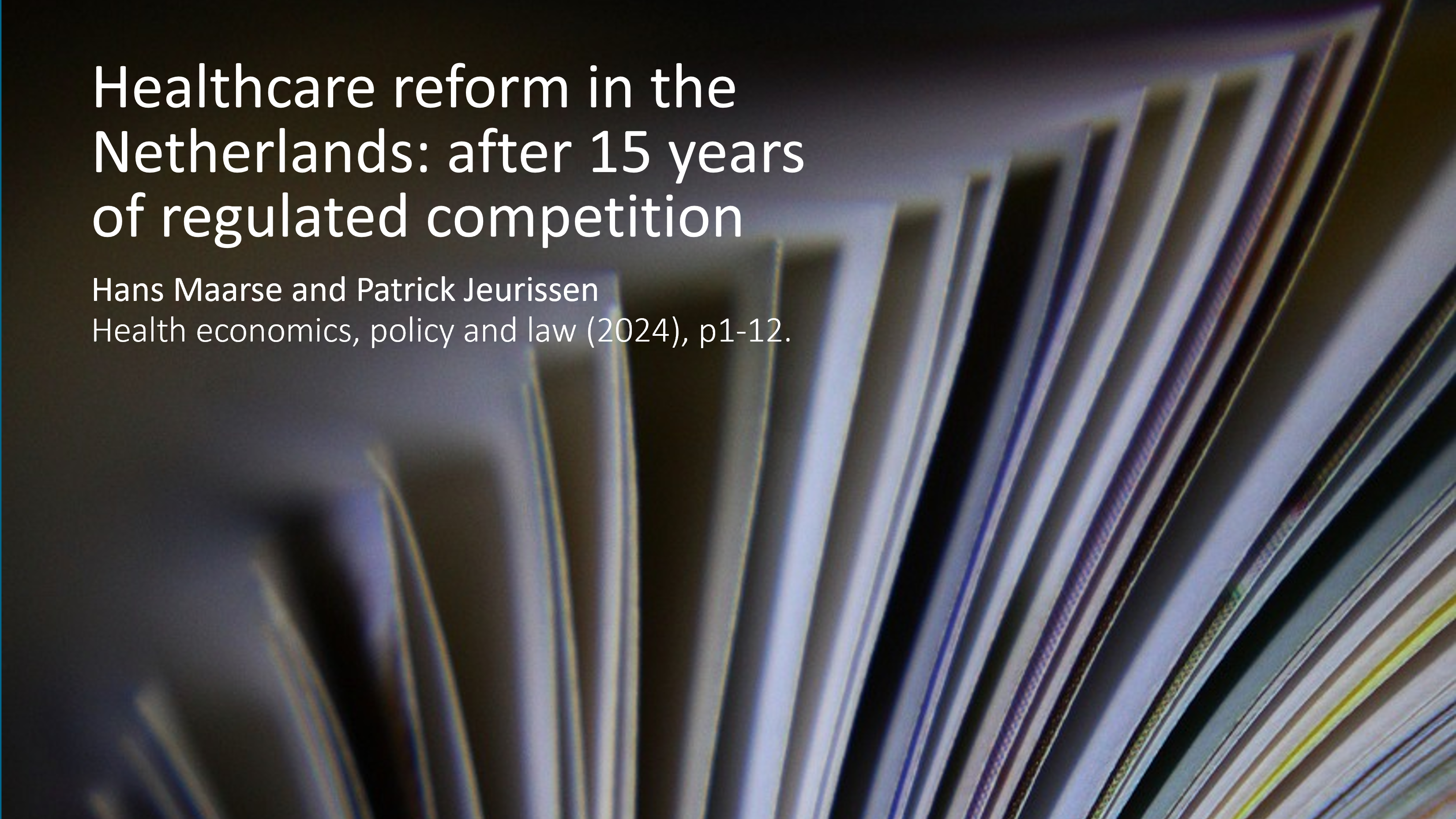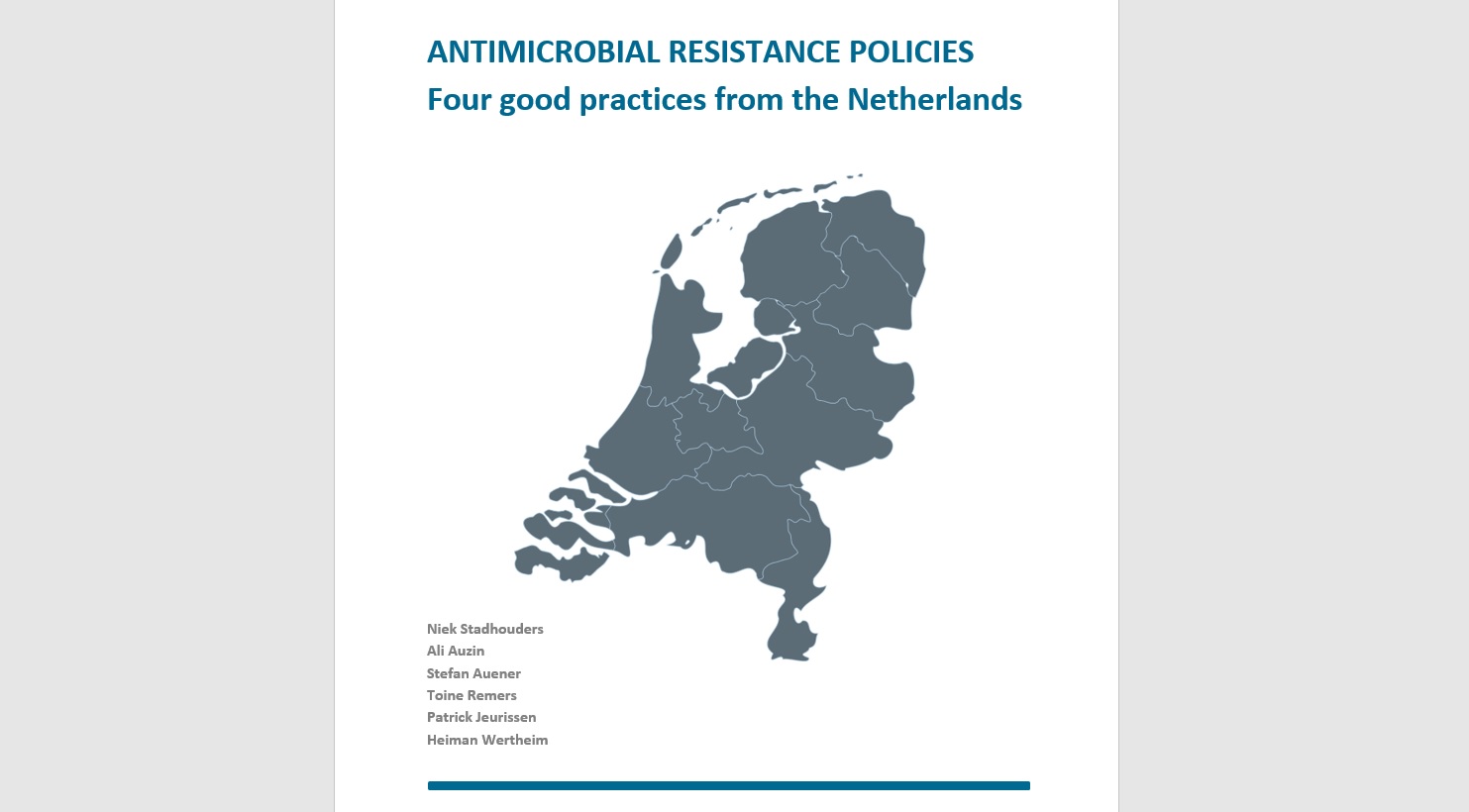
Healthcare reform in the Netherlands: after 15 years of regulated competition
6 February 2024
This article discusses the results and prospects of the market reform in Dutch health care which came into force in 2006. The central message is that the high expectations of the market reform have not come true ...
Read the full article Healthcare reform in the Netherlands: after 15 years of regulated competition, Hans Maarse and Patrick Jeurissen, Health economics, policy and law (2024), page 1 of 12.

The Financial Times | NHS at risk of taking longer to recover from pandemic than other health systems
2 March 2022
Article with contribution of prof. dr. Patrick Jeurissen.
read full article.

Unmasking a Healthcare System: The Dutch Policy Response to the Covid-19 Crisis
5 March 2021
Unmasking a Healthcare System: The Dutch Policy Response to the Covid-19 Crisis
Public health crises, like the Covid 19 outbreak, require decisive intervention at both national and local levels, and reveal institutionalized resilience capacity of healthcare systems. Covid-19 not only unmasks some of the most critical features of the Dutch healthcare system, it has also become the litmus test for political decision-making in times of crisis.
Unmasking a Healthcare System: The Dutch Policy Response to the Covid-19 Crisis
Wallenburg, I.; Helderman, J.K. ; Jeurissen, P.; Bal, R.
Health Economics, Policy and Law, (2021), pp. 1-14

Complex Governance Does Increase Both the Real and Perceived Registration Burden: The Case of the Netherlands
Comment on “Perceived Burden Due to Registrations for Quality Monitoring and Improvement in Hospitals: A Mixed Methods Study'
7 January 2021
The burden of registrations for care professionals should be more firmly on the policy agenda. In a rigorous study, Marieke Zegers and colleagues make a compelling argument why that should be the case. In Dutch hospitals, the average professional spends 52.3 minutes a day on quality registries and monitoring instruments. The issue at hand is very complex and more operational efficiency alone will not solve this problem...
Read more…

How the logics of the market, bureaucracy, professionalism and care are reconciled in practice:
an empirical ethics approach
10 November 2020
Florien M. Kruse, Wieke M. R. Ligtenberg, Anke J. M. Oerlemans, Stef Groenewoud and Patrick P. T. Jeurissen
BMC Health Services Research volume 20, Article number: 1024 (2020)
Read the article

Antimicrobial Resistance Policies
Four good practices from the Netherlands
28 May 2020
Download the report Antimicrobial Resistance Policies, Four good practices from the Netherlands' by Niek Stadhouders, Ali Auzin, Stefan Auener, Toine Remers, Patrick Jeurissen, Heiman Wertheim.

The Netherlands Response to the Coronavirus Pandemic
Patrick Jeurissen 11 April 2020
In a blogseries of Health Economics, Policy and Law about the respons of countries on the Covid-19 pandemic, Patrick Jeurissen and collegues describe the Dutch respons on Covid-19 and the typical elements in this approach.
Read more…
Sustainable healthcare for all citizens
Patrick Jeurissen 29 May 2013
All Dutch citizens have access to healthcare. High quality access at that. Some studies even claim that it is the best healthcare worldwide. Even so good, sustainable healthcare is not a matter of course, not even in our Western world. Why is that? Because care comes at a price. Healthcare in the United States is the most expensive in the world, with us finishing second. We spend twelve percent of all the money earned in our country on healthcare. Plus costs are continuously increasing: five percent every year, which amounts to seven billion Euros for just this cabinet period.
Read more…








